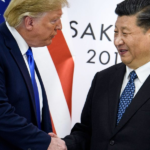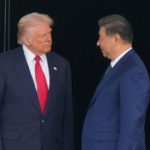Chanel is the latest luxury company to succumb to a sector-wide downturn that has weakened several of its larger French competitors, including LVMH and Kering.
The London-headquartered tweed suit maker saw revenues and operating profits fall 4.3% and 30%, respectively, in 2024—a sharp drop for a company that had weathered the initial shock of the luxury slowdown.
Meanwhile, its capital expenditure jumped 43% to $1.8 billion as Chanel expanded its stores and targeted new markets and creative endeavors.
As Chanel navigates a tricky year, its dividend for 2024 may take a backseat.
The luxury giant hasn’t disclosed or proposed a final dividend yet, according to a filing reported by Bloomberg. But a spokesperson told Fortune that the board will decide any payments in the coming months.
Chanel’s earnings were dragged down by a slower appetite from high-end shoppers due to macroeconomic challenges and the company’s aggressive price increases. Bernstein SG analysts, led by Luca Solca, noted that the brand had increased prices by 59%—the highest compared to other luxury players—between 2020 and 2023.
“Chanel’s management may blame the macroeconomic context for their performance — we aren’t buying it — but their decision to hold off on price increases in 2025 and potentially even absorb U.S. tariffs suggests they know better,” Solca wrote in the note.
Tariffs and their impact could result in further uncertainty for luxury labels, which might have to increase prices, move some production, or find alternate ways to cope with how the additional levies impact consumer confidence worldwide.
“As a 100-year brand, we expect ebbs and flows. Our philosophy has always been to act with a long-term view, propelled by the singularity of the Chanel brand,” CEO Leena Nair said in a statement when reporting annual results on Tuesday.









